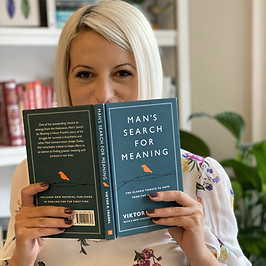Support to Grow as a Coach
I believe in the transformative power of coaching. This is profound, intimate relational work which facilitates healing and radical shifts.
But precisely because it’s profound and intimate, we are two humans interacting in a relationship, and relationships bring up dynamics, question marks and challenges.
.jpeg)

Some of these challenges might be:
-
Knowing when interrupting would be in the client’s benefit, and when it’s not.
-
Modulating our empathy so we can care, but with enough detachment to still be effective.
-
Navigating difficult emotions that might come up for the client, or for you.
-
Working with complex cases and grey areas which might involve neurodiversity, trauma or mental health.
-
Figuring the way out of ethical dilemmas.
-
Having difficult conversations in a way that strengthens the relationship rather than undermine it.
-
Blind spots. You don’t know what you don’t know. And once you do know, you become a much more impactful coach.

It can feel vulnerable and exposing to talk about such difficulties, which is why I work in a relational way, and we focus on building trust and safety so anything that comes up can be contained and processed together.
As an experienced supervisor with over 500 hours of 1:1 and group practice, I’ve encountered hundreds of challenges just like these. I believe my role is to help you clarify, learn and increase your autonomy so you can feel confident and increase your impact (often by doing less!).

Coaching supervision helps you:
-
Reclaim and process your stuff
-
Renew your courage and confidence to name things that will be valuable for the client to move forward
-
Be a clean, open presence for your coaching relationships
-
Develop your coaching skills
-
Navigate new coaching situations
How I work:
-
I have a relational approach to supervision, leveraging our relationship to resolve dilemmas and questions.
-
Helping you shed light on what’s happening under the surface so it can be processed and then translated into positive, solution-focused actions.
-
Some frameworks I bring to our supervision work: transactional analysis (TA), internal family systems (IFS), jungian psychology, person-centred, gestalt, psychodynamic.
-
Coming from a line of teachers and educators in my family, I believe I inherit the gift of explaining things clearly and simply.
-
I have been described as gentle, nurturing, and supportively challenging.

Who I work with:
-
I enjoy working with all coaches who love and care about the quality of their coaching, and in particular, I enjoy working with HSPs (Highly Sensitive People).
-
Organisations who have an internal coaching function.
-
Coaching schools who offer coach training to organisations.
About me:
-
Psychology degree (2007)
-
Career in corporate sales and HR recruitment & leadership roles
-
Formally coaching since 2018 (trained with Animas Centre for Coaching)
-
ICF ACC credentialed (2021) - currently in progress with PCC
-
ICF mentor for coaches applying for ACC
-
Faculty at Animas Centre for Coaching (supervisor for coaches-in-training)
-
Faculty at the International Centre for Coaching Supervision (supervision of supervision and assessor)
-
Over 500 hours of supervision (mix of 1:1 and group)
-
Over 500 hours of coaching (mainly career coaching)
my clients share
some kind words

The world deserves coaches who are profoundly committed to the transformative work they do.
Is this you?
I’m here if you’re ready. And even if you don’t think you are yet.
Contact me if you’d like to explore how coaching supervision can help you to build skills, confidence and a renewed sense of purpose.
Or read more about me here.

